4 Simple Risk Management Tips
Published on: Thursday, July 30th, 2015
Owning residential real estate can be a fantastic investment. But like any investment there are risks and knowing how to hedge against these risks is crucial to ensuring your real estate investment remains profitable and healthy. Here are four tips to live by when managing your asset:
- Water Risk: When was the last time you changed out the water supply lines for your toilet, kitchen faucet or washing machine? Have you checked to ensure the shut off valves for your plumbing fixtures work or how about the main shut off valve? Avoid thousands of dollars of damage and the risk of plumbing fixtures failing by changing out water supply lines at least every five years. If something does burst suddenly, have the peace of mind knowing your shut off valves work, so replace those if they are hard to turn or if your house is 20 years or older. The most useful tip: make sure your tenant knows where the shut offs are so they can take immediate action. Seconds matter when water is gushing out of a half inch water line at 100 PSI, so some simple education can go a long way.
- Electrical Risk: Old outlets that don’t hold a plug are a fire hazard. The loose connection can cause the plug to heat up and start on fire. Outlets are cheap so don’t skimp on replacing them. If you have a fuse box, consider upgrading your electrical panel to circuit breakers. It can be easy for anyone to change out a fuse that continuously blows with a higher amp fuse. At a minimum, hire an electrician to replace the fuses with tamper proof fuses that only allow the correct size fuse to be used.
- Gutters: If there are mature trees taller than your property, then you can count on the gutters collecting debris. Landlords that expect their tenants to clean gutters, may be wishful thinkers. Although it makes sense in theory to hold them responsible for maintaining the gutters since it can be considered yard work, it is not practical. The biggest reason being tenants simply don’t do it. Not to mention the risk you the landlord subject yourself to if the tenant should fall off a ladder and get hurt on your property. Plus water cascading over full gutters can have serious effects on the foundation causing settling and water damage inside the home. Consider installing gutter guards to hedge against this risk, but at a minimum hiring a contractor to clean the gutters regularly is cheap “insurance.” So don’t leave this part of your investment in the hands of your tenant. Owning this scope of maintenance will save you a lot of money in the long run.
- Mold Risk: Flooded basements, wet carpets, drain back ups, humid bathrooms, hvac condensation leaks; whatever the source of water leakage, once building materials become saturated with water, there is a 48 hour window of time to dry out the materials before a mold hazard sets in. Tenants are more aware than ever of the risks of mold and landlords should be equally concerned. Thousands of mold related litigation cases are seen every year in the US, and half of them involve single family homes. Proper mold remediation involves testing, air scrubbers, high powered dehumidifiers, removal of contaminated material like drywall and carpet and biocides (not beach) to kill any remaining mold spores. Many insurance companies do not cover mold related damages, so acting quickly will be your best defense to curb remediation costs which can grow as quickly as mold itself. Your best bet may be to hire a professional for water extraction and dry-outs using high powered air movers and dehumidifiers. After the dryout period, test walls and floors with moisture meter that will sense saturation levels. If the materials are too saturated, they will have to be removed.
So while these risks may be latent they certainly are worth looking out for because the costs of missing them can be very large.




